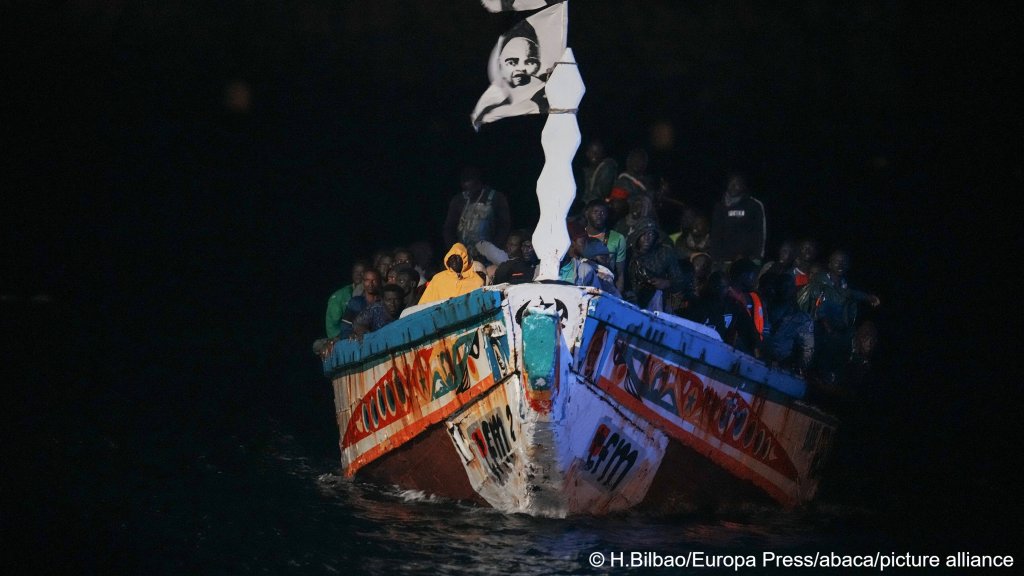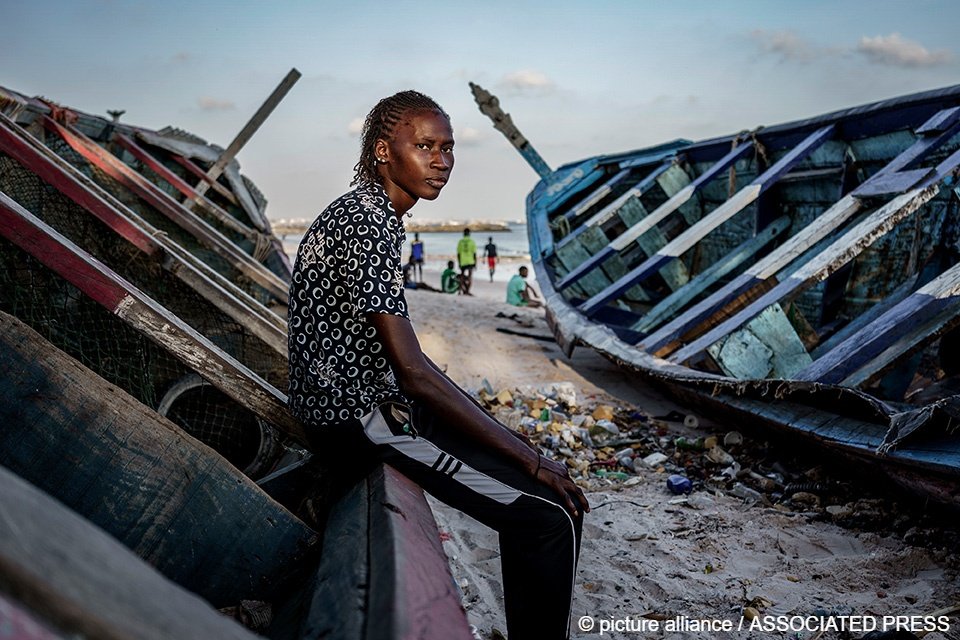A migrant boat carrying around 160 people suffered shipwreck off the coast of Mauritania on Wednesday, August 27. The Mauritanian coast guard managed to rescue only 17 people, according to the United Nations Refugee Agency (UNHCR), as many of the migrants remain unaccounted for.
At least 40 people have been confirmed dead, according to the latest figures provided by UNHCR. Over 100 migrants are still missing, and it is believed to be unlikely that further survivors will yet be found.
In a video filmed by Senegalese nationals in Mauritania, several washed-up bodies can be seen scattered along a beach.
Those who did survive the ordeal report that they had to swim for over an hour to get back to the Mauritanian shore after their boat had capsized.

The boat carrying dozens of migrants had reportedly departed from The Gambia, carrying over 160 people chiefly of Senegalese and Gambian origin.
According to eyewitness accounts, the boat the migrants were on malfunctioned soon after departure. Their smugglers reportedly sent assistance with a second boat from Mauritania to make sure they could continue with their journey.
The passengers on the initial boat, however, reportedly capsized while transferring equipment between the two boats.
Read AlsoMauritania: Dozens of migrants rescued just before boat wreck
A perilous journey full of despair
In recent years, the Atlantic route from West Africa to Spain's Canary Islands has become one of the main routes for sub-Saharan migrants to attempt an irregular journey into the European Union.
The wooden boats used by smugglers are unsuitable to travel such long journeys, which can span over 1,000 kilometers and more, and can take many days and even weeks in some instances. The boats are usually extremely overcrowded and equipped with little to no food supplies.
The Atlantic route to the Canary Islands is considered to be the deadliest: Over 10,400 migrants died or disappeared at sea while attempting to reach Spain in 2024 along, according to the NGO Caminando Fronteras.
The actual number of deaths however is likely much higher, as many boats that suffer shipwreck are never found.

Read AlsoSpain: Migrants taking riskier 2,000-kilometer sea journeys to reach Canaries
Reports of human rights abuse in Mauritania
In 2024, the number of arrivals in the Canaries reached a record high: In the first eight months of 2024, over 22,300 people managed to reach the archipelago.
However this year, those numbers dropped by nearly half, with just under 11,900 people making successful journeys to the EU territory, according to the Spanish Interior Ministry.
The number of deaths on this route has also plummeted, with around 1,800 deaths being recorded by Caminando Fronteras in the first six months of 2025.
Read AlsoSpain: Government registers drop in Canary Island arrivals
These changes in numbers are mainly linked to Spain signing a series of agreements with African governments -- above all Mauritania, which has emerged in recent years as a main departure point -- to stem the flow of migrants in exchange for development aid.
However, NGOs like Human Rights Watch (HRW) claim that Mauritanian authorities use heavy-handed and brutal methods to contain people; their latest report highlights the pervasive nature of abuses, including torture, rape, arbitrary detention, inhumane conditions, and mass expulsions.
"For years, Mauritanian authorities followed an abusive migration control playbook -- sadly common across North Africa – by violating the rights of African migrants from other regions," Lauren Seibert, refugee and migrant rights researcher at Human Rights Watch, said in a press statement, adding however that there were signs emerging of the Mauritanian government to reform its approach.
Read AlsoHRW accuses Mauritania of serious violations of migrants' rights
